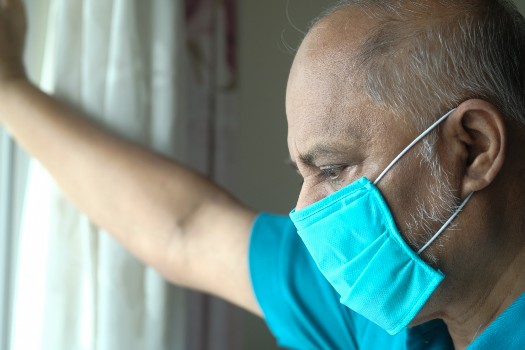Being of Bangladeshi origin doubles Covid-19 death risk, finds PHE review

People of Bangladeshi origin are most at risk of dying from Covid-19, Public Health England’s rapid review into the disparities in risks and outcomes of Covid-19 has concluded.
But the report, published today, found that ‘people from Black ethnic groups were most likely to be diagnosed’ with the disease.
In response, health secretary Matt Hancock said he was ‘determined’ to ‘understand in full and take action to address’ the health inequalities that have been exposed.
The report said: ‘An analysis of survival among confirmed Covid-19 cases and using more detailed ethnic groups, shows that after accounting for the effect of sex, age, deprivation and region, people of Bangladeshi ethnicity had around twice the risk of death than people of White British ethnicity.
‘People of Chinese, Indian, Pakistani, Other Asian, Caribbean and Other Black ethnicity had between 10 and 50% higher risk of death when compared to White British.’
This contrasts with previous years where mortality rates were ‘lower in Asian and Black ethnic groups than White ethnic groups’, PHE said.
But it noted its ethnicity analysis did not account for comorbidities, obesity or occupation – which are associated with both the risk of infection and of dying.
When separately analysing comorbidities, the review found that people from BAME backgrounds are more likely to have comorbidities that lead to negative outcomes from coronavirus.
It said: ‘The proportion of Covid-19 deaths where diabetes is mentioned ranged from 18% in the White ethnic group, 43% in the Asian group to 45% in the Black group.’
The same ‘disparities’ were found for hypertensive disease, which was present on the death certificate of 20% of those who died with coronavirus.
The proportion ranged from 17% in the White ethnic groups to 40% in the Black group and was ‘also high’ in the Asian and Mixed groups, PHE said.
It added that ‘emerging evidence’ has also suggested that a better understanding is needed of the impact of obesity on Covid-19 outcomes ‘particularly’.
However, the biggest risk factor for death from Covid-19 remained age, PHE’s review concluded, with sex and social deprivation also playing significant parts.
Announcing the publication in Parliament today, Mr Hancock said: ‘People are understandably angry about injustices and as health secretary I feel a deep responsibility because this pandemic has exposed huge disparities in the health of our nation.
‘It is very clear that some people are significantly more vulnerable to Covid-19 and this is something I am determined to understand in full and take action to address.’
The equalities minister will be ‘leading on this work and taking it forward’ alongside PHE to further understand the impacts of the review’s findings, he added.
BMA council chair Dr Chaand Nagpaul said the report was merely a ‘statistical analyisis’, which while ‘important’ was a ‘missed opportunity’ to set out mitigating action.
He said: ‘The BMA and the wider community were hoping for a clear action plan to tackle the issues, not a re-iteration of what we already know. We need practical guidance, particularly in relation to how healthcare workers and others working in public-facing roles will be protected.’
Dr Chandra Kanneganti, chair of the British International Doctors Association, told Pulse: ‘We were made to believe this was going to produce some actions – we don’t need stats, we need recommendations.
‘Through BIDA, we have spoken to the health secretary many times. I heard Matt Hancock say they will follow this with actions, and I hope he does, but this report has already been delayed and is already late.
‘We would like PHE to look at occupations, and provide recommendations on how our members can mitigate their risks in their particular jobs. We need a clear, one-page guidance on how we protect BAME communities – not this 89-page guidance.’
It comes as 10 out of 11 GPs to have died with Covid-19 so far in England were of BAME origin.
Recent Office for National Statistics modelling suggested doctors and nurses do not have a higher Covid-19 mortality rate than others of the same age and sex, although care workers were more likely to die than people in other occupations.
Visit Pulse Reference for details on 140 symptoms, including easily searchable symptoms and categories, offering you a free platform to check symptoms and receive potential diagnoses during consultations.









